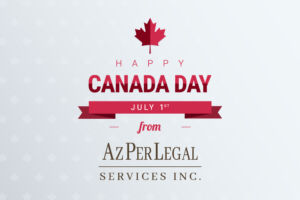Set out below is a very extensive checklist for the executor of an Estate. While many of these items may not apply to your situation, nor is there a strict requirement to follow this checklist, the checklist meant to assist you in what can seem an overwhelming responsibility.
Preliminary Matters
- Locate and review the Will; review it for specific instructions concerning funeral wishes
- Make funeral arrangements, if necessary
- Obtain original copies of the Proof of Death certificate
- Assess the financial needs of immediate family members and of the estate
- Forward mail, discontinue telephone – cell and landline, television, newspaper, magazine subscriptions, etc.
- Contact all individuals with possible interest in the estate – set expectations and provide them with an overview of the process, from probate to distribution
- Arrange for care and adoption of pets – review the Will to determine if this has been addressed in the Will
Safeguarding the Estate Assets
- Verify that adequate insurance is in place to protect all real assets
- Obtain a vacancy permit for any real property
- Re-direct utility bills to executor
- Notify the banks and financial institutions where the deceased held account or had other dealings
- Open an estate account to deposit income and pay expenses (may need probate for this)
- Arrange for safekeeping of deceased’s valuables
- Arrange for the residence to be emptied and cleaned, locks to be changed and if required, the property to be sold
Inventory Estate Assets
- Search for assets, contact banks and investment firms, investigate past tax returns for asset information
- Initiate settlement of life insurance or group insurance policies and pension benefits
- Contact deceased’s employer to verify salary and/or benefits owing and to determine any health, pension retiree or death benefits to which the spouse or family may be entitled
- List contents of safety deposit box
- Inspect real estate titles, lease, mortgages, etc.
- Cancel CPP and OAS benefits, Alberta Seniors Benefit, Alberta Health Care, if applicable
- Apply for and collect CPP death benefit
- Contact Canada Revenue Agency (CRA) to cancel GST and child tax benefits, if applicable
- Arrange for valuation of assets – determine market value as at date of death and original purchase price for each asset for taxation purposes
- Arrange for Notice to Creditors
- Cancel credit card accounts and either return credit cards to issuers or destroy them
- Cancel social insurance card, passport, driver’s license and health insurance card, if required
- Locate all original investment certificates, stocks, bonds, property deeds, etc.
- Identify, value and record estate assets as at the date of death
- Investigate all debts owed by the deceased
Obtain Grant of Probate
- Instruct either paralegal to draft Application, Affidavit and other necessary documents for submission to Surrogate Court – the Grant of Probate attests to the validity of the Will and confirms who is acting as executor
Administering the Estate
- Receive the Grant of Probate or Grant of Administration
- Close out bank accounts and place funds in estate account, if not already done so
- Close out safety deposit box
- Distribute specific bequests/personal belongings to respective beneficiaries according to the terms of the Will – arrange for sale if advisable
- Register securities and bonds in Executor’s name, determine whether such should be held, sole or transferred to beneficiaries
- Obtain transmission of estate real property into Executor’s name – sell or manage property as required
- Submit necessary claims for insurance and annuities payable to estate
- Determine the validity of any creditor claims and discharge estate debts where and when appropriate
- Review the suitability of investments held in the estate and recommend assets to be sold to meet cash requirements
- Invest any surplus cash until estate is finalized, selecting from allowable investments
- Complete documentation and arrange to transfer employment, health, pension and retiree benefits
- Pay all debts and settle all legitimate claims prior to final distribution of assets, obtaining receipts for any payments made
Taxes
- T1 Terminal tax return to be filed April 30 of the year following death or six months following the date of death, whichever date is later
- Obtain copies of prior tax returns (3 years) filed by the deceased
- File any outstanding returns from previous years if not yet filed
- File any necessary U.S. or foreign tax returns
- Ascertain tax liability of estate – do this prior to final distribution
- Determine if an RRSP contribution should be made
- Pay all income taxes owing
- Arrange for preparation of T3 – Estate tax return, if necessary
- Review notice of assessment to confirm all tax liabilities have been settled
- Obtain Tax Clearance Certificate from the Canada Revenue Agency once the Notice of Assessment(s) have been received, confirming that all tax liabilities have been settled
- Complete a final tax return for the estate as well as for the deceased’s business if necessary
Distribute Estate
- Begin distributing assets to beneficiaries according to the terms of the Will once it has been probated and once you have ensured that there are sufficient funds to pay outstanding debts and taxes of the deceased
- Establish any testamentary trusts
- Prepare accounting of all assets, liabilities, expenses and distribution of all assets for all of beneficiaries
- Prepare a statement of expenses (and compensation, if any) as executor
- Obtain Releases from beneficiaries upon final distribution of assets
- Complete sale of assets and transfer of titles
- Complete distribution of specific bequests (personal belongings) to respective beneficiaries according to the terms of the Will, obtaining receipts
- Advise beneficiaries to consult with a tax advisor to ensure the most tax advantageous treatment of their inheritance
- Arrange for final distribution of remaining assets, obtaining receipts from each beneficiary
- Advise the bank in writing to close the estate account once the estate is settled
- Have each adult beneficiary approve the accounting and sign a release form





